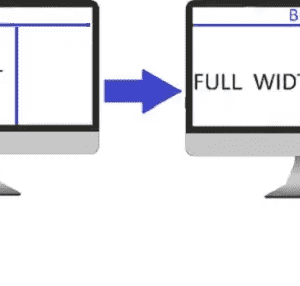Navigating the world of car repairs can be daunting for the average car owner, particularly when dealing with perplexing issues like a fuel/gas smell inside the car when the AC is on.
For many, this issue raises immediate concerns about safety and, of course, comfort while driving.
This journey starts with an understanding of your car’s HVAC (Heating, Ventilation, and Air Conditioning) system, as it is pivotal in troubleshooting any related problems.
Knowledge about how the compressor, condenser, expansion valve, and evaporator work in harmony is necessary.
You will also need to scrutinize the potential culprits behind the fuel smell, such as a fuel leak, a malfunctioning gas cap, spilled fuel, or a possibly defective charcoal canister.
Equipping yourself with this knowledge will grant you the confidence to identify the problem accurately.
Table of Contents
Understanding the HVAC System in a Car
What’s The HVAC System in a Car
A car’s Heating, Ventilation, and Air Conditioning system, also known as HVAC, is responsible for providing a comfortable environment inside the vehicle, regardless of outdoor conditions.
The key components of this system include the compressor, condenser, expansion valve, and evaporator.
Each of these parts plays a crucial role in the functioning of the HVAC system, and understanding how they work will help when it comes to troubleshooting issues.
The compressor, often considered the heart of the HVAC system, pressurizes and circulates the refrigerant. It’s driven by the car’s engine via a belt. As the compressor operates, it generates a fair amount of heat, which can cause wear and tear over time.
The condenser is similar to a small radiator, typically located in front of the vehicle’s regular radiator. It disperses heat carried by the refrigerant from the compressor. Over time, condensers may develop leaks or blockages, which can lead to HVAC problems.
The expansion valve serves to control the flow of the pressurized refrigerant, turning it from a high-pressure liquid into a low-pressure mist, right before it enters the evaporator.
Finally, the evaporator, typically located inside the vehicle cabin, absorbs the heat from the air in the car, cooling it down before it’s blown into the vehicle’s interior. The evaporator could be a potential source of the smell if it’s leaking refrigerant.
A fuel or gas smell when the AC is on could be a sign of a problem with any of these components, or it could indicate a fuel system issue, unrelated to the HVAC system.
Troubleshooting the Gas/Fuel Smell Inside Car Cabin
If you are experiencing a fuel or gas smell when you run your car’s AC, it is imperative to try and find the source of this smell.
It’s always a good idea to check for visible fuel leaks under the car, around the engine, and near the HVAC components.
Look for wet or discolored spots on the ground under the car and leaking fluids around the engine compartment.
Another likely place to look is the fuel injector lines. If these lines are old or damaged, fuel could be leaking out and being sucked into the ventilation system, creating a smell when the AC is running.
A similar problem could also occur if the fuel tank ventilation system (also known as the EVAP system) is malfunctioning – instead of containing and burning off fuel vapours, they could be entering the car through the air conditioning system.
If no leaks are detected, check that your HVAC system is switching correctly between recirculated and fresh air modes. If the system is stuck on fresh air mode, it could be drawing in exhaust fumes from your own car, especially if there are exhaust leaks.
Don’t ignore a fuel smell in your car, as this could potentially be a sign of a serious problem. If in doubt, seek help from a professional mechanic or automotive technician.
Identifying Fuel Smell Causes
Identifying the Cause of Fuel Smell in Your Car
In order to fix a fuel smell inside your car when the AC is on, the first step is to identify the potential causes.
Several possibilities could be contributing to this issue, and understanding them will help you to address the problem.
Fuel Leak
One of the most common causes of a fuel smell in a car is a fuel leak.
This is a serious issue that should be addressed immediately because it could potentially result in a fire.
It could be due to faulty fuel lines, injectors, or a fuel tank leak.
Check under your car for possible fuel puddles or spots, inspect your fuel lines and check the fuel injector for possible leaks.
It’s typically best to have a professional mechanic inspect potential leaks to ensure the highest level of safety.
Faulty Gas Cap
Another potential cause of a fuel smell in your car is a faulty gas cap. The gas cap helps to seal the fuel system and maintain pressure, which assists in preventing fuel vapor leakage, a cause of fuel smell.
If the seal on the gas cap is broken or if the cap itself is loose or missing, a strong fuel smell can be noticed, especially when the AC is on.
Check your gas cap to ensure that it perfectly seals the gas tank. If it’s loose, tighten it; if it’s broken or missing, have it replaced.
Spilled Fuel
Spilling fuel while filling up at the gas station can sometimes leave a lingering gas smell.
If this spill seeps into the car’s upholstery or carpet, the smell can be noticeable, especially when you turn on the AC.
Inspect the inside and outside of your vehicle for any signs of spilled fuel. If you find spilled fuel, clean it properly and allow your vehicle to ventilate.
Faulty Charcoal Canister
The charcoal canister, also known as the evaporative emission control system, is part of your vehicle that plays a significant role in keeping fuel fumes from being released into the atmosphere.
If the canister is faulty or the purge valve is stuck open, it can cause a fuel smell. This situation might need diagnostic equipment to properly identify, so you might need to take your car to a professional mechanic.
Being aware of the potential causes of the fuel smell in your car will help you deal with the issue quickly and efficiently.
Always remember, some causes like fuel leaks are serious and can lead to fire if not addressed promptly.
A strong consistent smell of gas is a clear indicator that your car needs immediate attention for safety.

Basic Car Maintenance and Troubleshooting
Checking for Gasoline Smell in Your Car
If you notice a gasoline smell inside your car when the AC is turned on, it can be due to a variety of causes.
Troubleshooting can help identify the problem and guide you towards a solution.
Understanding the Cause of the Fuel Smell
The smell of gasoline in your car can stem from several sources.
The most common causes may include a fuel leak, issues with your fuel system, an overflowing gas tank, or a loose gas cap.
It is important to note that anytime you smell gasoline in your car, it should be treated as a potentially serious problem.
Investigate for a Fuel Leak
If gasoline is leaking from anywhere in your fuel system, it can create a noticeable smell in your car.
To check for a fuel leak, inspect the undercarriage of your vehicle.
Any fluid leaks will be noticeable in the form of dark, wet spots on your driveway or garage floor.
A strong gasoline odor together with a leak suggests a fuel line or fuel tank leak.
Inspect the Fuel Cap
A loose or damaged gas cap can cause fuel vapors to escape, causing the odor you are experiencing.
Check the gas cap to ensure it is not loose or damaged. If the cap is loose, tighten it until it clicks.
If the cap is damaged, consider replacing it as soon as possible.
Examine the Cabin Air Filter
Cabin air filters are designed to trap pollutants from entering the vehicle’s cabin.
If the filter becomes excessively dirty or clogged, it could cause a gasoline smell in your car.
Check and replace the air filter if necessary.
Seek Professional Help
If the problem persists or if you discovered a fuel leak, you should seek immediate professional help.
A fuel leak can be very dangerous and should be repaired by a certified mechanic.
Basic Car Maintenance and the Fuel System
As a general rule, take note of warning signs on your dashboard that indicate any problem with the vehicle.
Regular car maintenance like checking for fluid leaks, ensuring that the gas cap is secure, and replacing air filters when necessary can help eliminate common causes of gasoline odor in a vehicle.
These are important and simple tasks that every car owner should learn how to do.
Not only will they maintain the longevity of your vehicle, but they will help keep you safe on the road.
Remember, smelling gasoline inside your car is not normal and should always be investigated. If you can’t identify and fix the problem yourself, immediately consult a professional.

Steps to Fix the Fuel Smell: Summarized
Identifying the Problem
Before setting out to fix the issue, it’s critical to identify the problem first.
The smell of fuel or gas in a car when the air conditioning is on is not normal, and it can indicate various problems, such as leaks or spills.
If there is a fuel leak, a strong gasoline smell will usually accompany it.
A loose gas cap or a damaged seal can also cause a fuel smell inside your car.
Inspect the Fuel System
If you consistently smell gas inside your car, your first step is to inspect your vehicle’s fuel system.
Examine the fuel lines, fuel tank, fuel cap, fuel injectors, and seals for any signs of damage or leakage. Be sure to check under the car as well.
If you discover any leaks or damage, repairs or replacements may be necessary.
Tighten the Gas Cap
Check if your gas cap is correctly closed. An improperly attached gas cap might be the source of the fuel smell in your car.
Open the gas cap and re-tighten it securely. In addition to this, examine the condition of the gas cap.
If it’s broken, cracked, or degraded, a replacement might be necessary.
Clean Up Any Spills
One of the reasons you might smell gas inside your car is due to spills that occurred during refueling.
In such cases, promptly clean up any spillage in the car, especially near the fueling area.
The gas odor should disappear after effectively cleaning the area.
Check Air Conditioning System
If the fuel smell is mostly noticeable when you turn on the AC, it might be due to a problem with the air conditioning system.
Inspect the system for any leaks and ensure that the air filter is in good working condition.
If the air filter is dirty, replace it.
Consult a Professional
If the smell persists even after conducting these checks and maintenance procedures, it’s recommended to consult a professional mechanic.
A lingering fuel smell could indicate more severe issues, including potential leaks in your fuel system, which might not only create a fuel smell but also pose a fire risk.
A professional can accurately diagnose and rectify the problem.

Having a comprehensive understanding of your vehicle’s HVAC system, acknowledging common causes of fuel smell and developing troubleshooting skills can remarkably help in addressing any issues related to a gas odor.
As you progress on this journey and determine the cause, the solution could be as simple as tightening a gas cap or as intricate as repairing a fuel line.
For more elaborate problems, it may involve replacing a malfunctioning component.
Arm yourself not only with the tools needed but also with ample knowledge and confidence to address these car problems efficiently.
Ultimately, it fosters a safer environment inside your car, making your driving experience significantly more comforting and free of worrisome smells.







